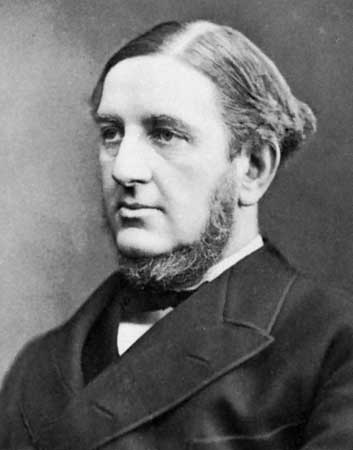
15A032 Decline of the Liberals by Jim Davies, 5/11/2015 
"Liberal" is a great word; it is about freedom, and in another sense about generosity. Both colors of meaning sit very well with market anarchism. It's a tragedy that, like "progressive", it has been stolen and twisted by those whose ideas are to restrict and deny individual freedom, and to be generous only with other people's stolen resources. There was a time, though, when the word was used in a way close to its true meaning, which must now best be called "classical liberalism." Its ideas prevailed, in 19th Century Britain, and as a result that country saw the greatest gain in broad-based prosperity in human history. Liberal ideas prevailed there for a century, from the late 1700s to the late 1800s, while the Liberal Party, as such, was formed only in 1869 and ceased to be classically liberal almost at once; in 1870 government schools were established, and in 1880 attendance up to age 13 was compelled; this, under "liberal" governments! They also enacted the first "social security" laws in 1908, and were in charge in 1914 when the country plunged into the disaster of WW-I. So the near-elimination of its descendant the Liberal Democrat Party in this month's UK election (its representation was 57 parliamentary seats beforehand but only 8 afterwards) was not the end of classical liberalism; that had died out far earlier. All the LibDems had in common with their predecessors was a name. The rot really set in 1½ centuries earlier, and it's worth taking a look at that process. The two great, liberal reforms that accompanied the start of the Industrial Revolution were the abolition of slavery in 1833 and the repeal of the protectionist Corn Laws in 1846. Both were done for solid, classical liberal reasons but technically on the impetus of Conservative politicians, notably Lord Wilberforce who had made slavery abolition his life's aim for two decades previous. The resulting great unleashing of individual freedom produced large, real increases in wages and profits for virtually everyone, at the same time that the population was quadrupling in size (1800 - 1900) - due not to immigration as in the US case, but to greater longevity as medical and agricultural sciences improved thanks to the increase in wealth. There's a great 1872 quote here from a prominent Liberal, Sir William Harcourt, part of which is: The difference between a free Government and a Government which is not free is principally this—that a Government which is not free interferes with everything it can, and a free Government interferes with nothing except what it must. There is Classical Liberalism at its best, spoken when it was at its zenith. Yet notice how very shallow it is! First comes the loose wording: "a free Government". What does that mean? Presumably Harcourt was referring to the government of a free society - but it's not what he said, and if he had said that, he'd have been uttering an oxymoron. If a society is governed, it is not free - and if it is free, it is not governed. Alternatively government is always free, by and large, to do as it pleases; for otherwise it would not be governing; hence, he'd have been speaking a truism. Then he spoke of government interfering, at best, only in what it "must" - but failed totally to define what he meant by "must". He committed the same error as Thomas Paine, after having failed to detect or correct it in a hundred years. What necessity is there, for government? - he didn't specify, any more than Paine did. Even worse: unlike Paine, he may have implied it but didn't confirm that government, necessary or not, is "evil." In other words, he had not got his brain in gear. He hadn't figured out what is the nature of free human beings, nor what is the nature of government. TOLFA was not around in 1872, but if it had been, Harcourt could have learned those key fundamentals from its first two, foundational segments.
I see no reason to suppose it. Absent a universal understanding that true wealth and wellbeing come only from labor and voluntary exchange, voters will always pick the softer option. If a voting scheme is available, why ever would they not? |
 Lastly, Sir William was speaking too late in any case. His Liberal Party colleagues had already, two years earlier, endorsed the formation of a youth indoctrination scheme funded with stolen money; by no means part of what any government "must" do, by any reckoning. Perhaps he was one of the old school, trying to call those colleagues back from the slippery slope into totalitarian government; but he could not.
Lastly, Sir William was speaking too late in any case. His Liberal Party colleagues had already, two years earlier, endorsed the formation of a youth indoctrination scheme funded with stolen money; by no means part of what any government "must" do, by any reckoning. Perhaps he was one of the old school, trying to call those colleagues back from the slippery slope into totalitarian government; but he could not. 







